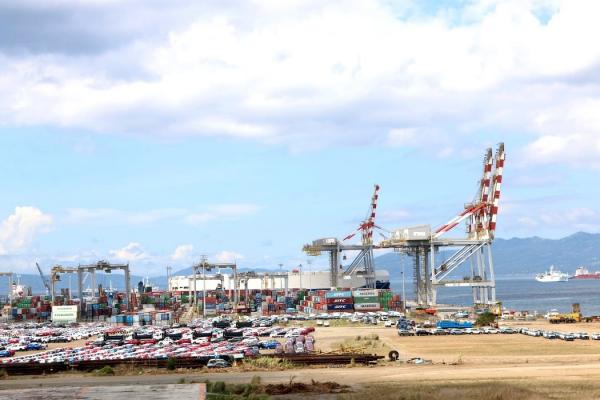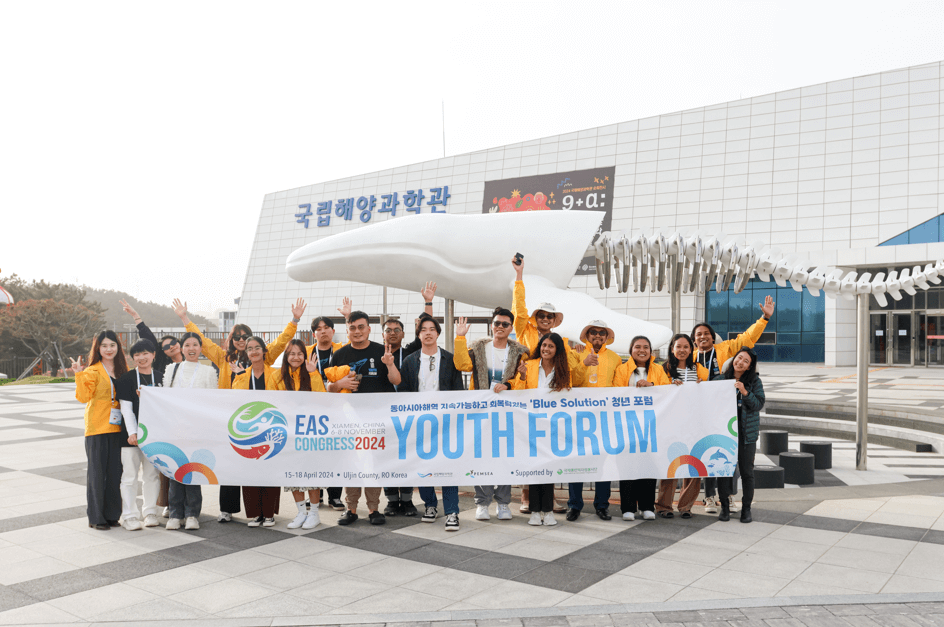Development of an advance mandatory ship waste management manual and notification system is underway
Monday, 25 April 2022

PEMSEA is one of the partner organizations of the EU-GIZ regional program called “Rethinking Plastics: Circular Economy Solutions to Marine Litter”.
The program supports the transition towards a circular economy for plastics in seven countries in East and Southeast Asia—namely China, Indonesia, Japan, Philippines, Singapore, Thailand, and Viet Nam—to contribute to a significant reduction of marine litter. The program aims to facilitate dialogue on plastic and waste between the EU, regional organizations such as ASEAN, and partner countries, especially in terms of the environment, shipping, and industry. It seeks to improve plastic waste management such as by encouraging extended producer responsibility and promote sustainable consumption and production of plastics, especially through packaging design and standards.
In relation to marine plastic waste, the program aims to improve waste management in ports, engage fishermen in waste collection, minimize the dumping of fishing gear at sea, strengthen green purchasing policies, share good practices, and raise awareness among the public on issues related to plastic consumption and its impacts on the environment.

Documentation of ship waste management processes at Batangas Port in March 2021
PEMSEA implements the ship waste management component to pilot test a digital waste notification and cost recovery scheme at Batangas Port. The component is managed by a core project team comprised of the Philippine Ports Authority (PPA)–Port Operations and Services Department, Batangas Port, Expertise France, and PRF. Other organizations involved in the implementation include the Department of Environment and Natural Resources, Maritime Industry Authority, and Philippine Coast Guard.
The ship waste pilot project aims to demonstrate practices to sustainably reduce the discharge of ship waste, including cargo residues, into the seas and coasts of the Philippines while ensuring the smooth operations of maritime traffic and improving the availability and use of adequate port reception facilities as well as the delivery of ship waste to these facilities.
Among the tools being applied are a mandatory advance waste notification system; optimization of processes for a cost recovery system; documentation of processes on ship waste handling and management in the port in the form of a Ship Waste Management Manual; and capacity-building of relevant port personnel and other stakeholders such as other mandated agencies, the shore reception facility provider, and shipping lines.
The project also involves the review and assessment of relevant policies and regulations on ship waste management and aims to provide policy recommendations for strengthening ship waste management.

Maritime activity off the coast of Batangas. Photo by PRF/A. Dacaymat, Jr.
To date, the ship waste component has achieved numerous milestones, namely:
- Consensus on the platform to be used for the mandatory advance waste notification system
- Development of the Ship Waste Management Manual
- Gathering of data for establishing the optimized cost recovery system
- Completed consultations with the shore reception facility provider and PPA to discuss options for streamlining payment processes in Batangas Port
- Identification of prospective topics for future training on ship waste management, to be supported by the project and linked with PPA’s own capacity-building initiatives
- Development of policy/legal assessment identifying the gaps and challenges in the implementation of relevant policies as well as best international practices that can be adopted in the Philippines for improved ship waste management
During the East Asian Seas Congress 2021, the Rethinking Plastics program held a knowledge-sharing session to bring together experiences and perspectives from Europe and East and Southeast Asia in terms of strategies, tools, mechanisms, and success stories in sustainable solid waste and plastic management. Check the proceedings of the event here to learn more: https://bit.ly/3JoWmJE.
The outputs and lessons learned on the pilot ship waste management project shall be shared during a national forum in mid-2022. The project is expected to conclude in May this year.
Hauling of solid waste from M/V St. Augustine of Hippo at Batangas Port. Photo by PRF/A. Dacaymat, Jr.



